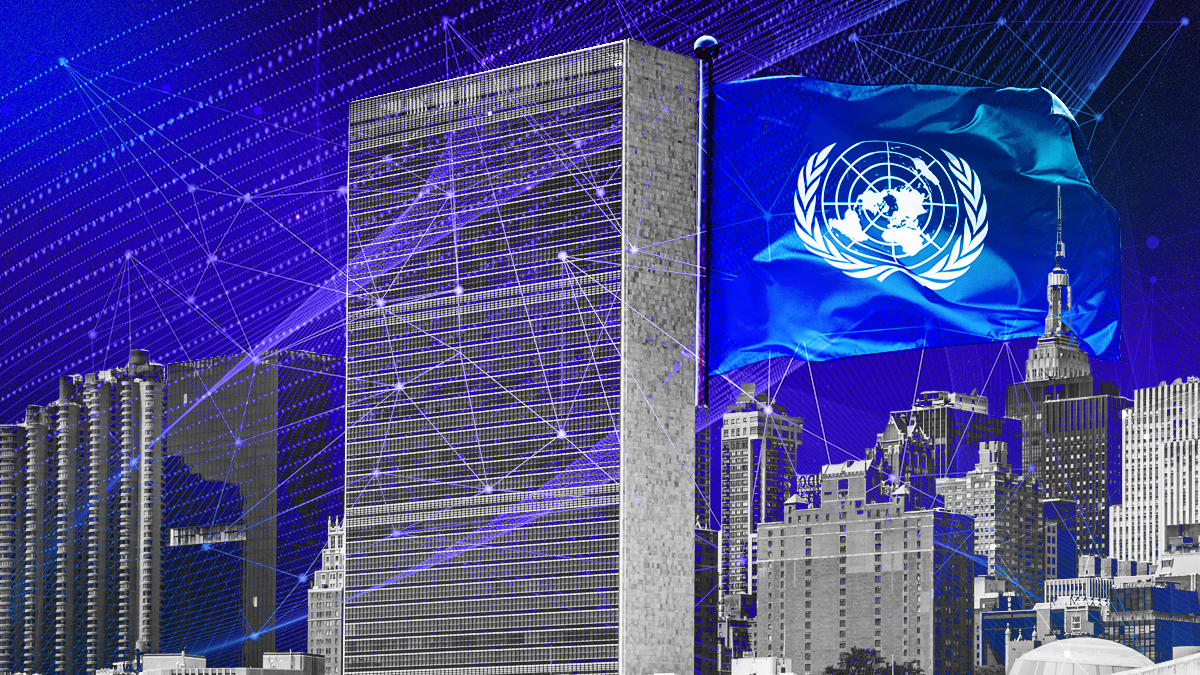September 19, 2024
Overnight, and after months of deliberation, a United Nations advisory body studying artificial intelligence released its final report. Aptly called “Governing AI for Humanity,” it is a set of findings and policy recommendations for the international organization and an update since the group’s interim report in December 2023.
“As experts, we remain optimistic about the future of AI and its potential for good. That optimism depends, however, on realism about the risks and the inadequacy of structures and incentives currently in place,” the report’s authors wrote. “The technology is too important, and the stakes are too high, to rely only on market forces and a fragmented patchwork of national and multilateral action.”
Before we dive in, a quick humblebrag and editorial disclosure: Ian Bremmer, founder and president of both Eurasia Group and GZERO Media, served as a rapporteur for the UN High-Level Advisory Body on Artificial Intelligence, the group in charge of the report.
The HLAB-AI report asks the UN to begin working on a “globally inclusive” system for AI governance, calls on governments and stakeholders to develop AI in a way that protects human rights, and it makes seven recommendations. Let’s dive in to each:
- An international scientific panel on AI: A new group of volunteer experts would issue an annual report on AI risks and opportunities. They’d also contribute regular research on how AI could help achieve the UN’s Sustainable Development Goals, or SDGs.
- Policy dialogue on AI governance: A twice-yearly policy dialogue with governments and stakeholders on best practices for AI governance. It’d have an emphasis on “international interoperability” of AI governance.
- AI standards exchange: This effort would develop common definitions and standards for evaluating AI systems. It’d create a new process for identifying gaps in these definitions and how to write them, as well.
- Capacity development network: A network of new development centers that will provide researchers and social entrepreneurs with expertise, training data, and computing. It’d also develop online educational resources for university students and a fellowship program for individuals to spend time in academic institutions and tech companies.
- Global fund for AI: A new fund that would collect donations from public and private groups and disburse money to “put a floor under the AI divide,” focused on countries with fewer resources to fund AI.
- Global AI data framework: An initiative to set common standards and best practices governing AI training data and its provenance. It’d hold a repository of data sets and models to help achieve the SDGs.
- AI office within the Secretariat: This new office would see through the proposals in this report and advise the Secretary-General on all matters relating to AI.
The report’s authors conclude the report by remarking that if the UN is able to chart the right path forward, “we can look back in five years at an AI governance landscape that is inclusive and empowering for individuals, communities, and States everywhere.”
To learn more, Ian will host a UN panel conversation on Saturday, Sept. 21, which you can watch live here. And if you miss it, we’ll have a recap in our GZERO AI newsletter on Tuesday. You can also check out the full report here.
From Your Site Articles
- Ian Explains: Why is the UN's Summit of the Future so important? - GZERO Media ›
- UN’s first global framework for AI governance - GZERO Media ›
- AI's existential risks: Why Yoshua Bengio is warning the world - GZERO Media ›
- Exporting AI in a responsible and secure way - GZERO Media ›
- Using AI to solve global challenges like food security - GZERO Media ›
- AI for Good depends on global cooperation, says ITU's Doreen Bogdan-Martin - GZERO Media ›
- Ian Bremmer and Amina Mohammed on the promise and peril of AI - GZERO Media ›
More For You
- YouTube
On GZERO World, IMF chief Kristalina Georgieva explains to Ian Bremmer why the global economy—and even the eurozone—is proving more resilient than expected.
Most Popular
- YouTube
At the 2026 World Economic Forum in Davos, GZERO’s Tony Maciulis spoke with Ariel Ekblaw, Founder of the Aurelia Institute, about how scaling up infrastructure in space could unlock transformative breakthroughs on Earth.
- YouTube
Who decides the boundaries for artificial intelligence, and how do governments ensure public trust? Speaking at the 2026 World Economic Forum in Davos, Arancha González Laya, Dean of the Paris School of International Affairs and former Foreign Minister of Spain, emphasized the importance of clear regulations to maintain trust in technology.
- YouTube
Will AI change the balance of power in the world? At the 2026 World Economic Forum in Davos, Ian Bremmer addresses how artificial intelligence could redefine global politics, human behavior, and societal stability.
© 2025 GZERO Media. All Rights Reserved | A Eurasia Group media company.
